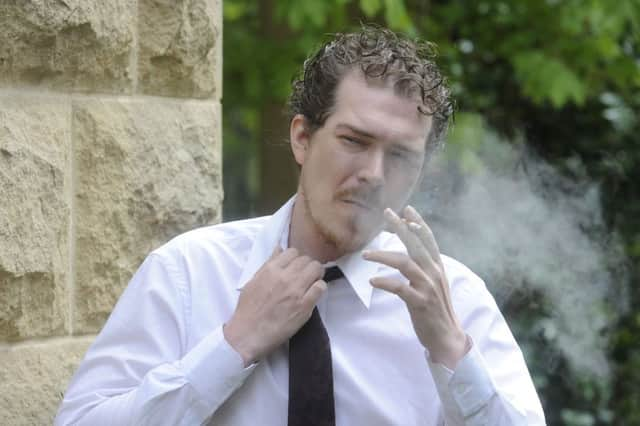How can smoking be a lifestyle choice when most want to stop?


The problem with talking about smoking as a lifestyle choice is that in most cases it’s not.
Certainly there are informed adults who make a proactive choice to smoke and, so long as they cause no harm to others, that is their business. Yet we have known for some time that most people who smoke started when they were children and that most people who smoke say that they want to stop. The simple fact is that these are more representative of the smoking population in 2016.
Advertisement
Hide AdAdvertisement
Hide AdThe more we look into the figures the further we move from the picture of free adults enjoying smoking tobacco. While the smoking rate has reduced to around 20 per cent in the general population it is four times higher in the poorest areas than in the richest. Almost 50 per cent of people with a registered disability, or those who are unemployed and seeking work, smoke tobacco. The rate is nearer three-quarters in the prison population and amongst people with severe mental ill health. In every one of these groups most of those who smoke say that they want to stop.
With the likelihood of smoking so determined by social and economic situation, this is not a matter of people making free lifestyle choices but instead about responding to their circumstances in a way that is rational and understandable yet ultimately damaging, expensive and regressive.
The clear implication is that we must reject any suggestion of blaming people for their “lifestyle choices”, health or poverty. Nor should we abandon people to an unfair distribution of the social and economic pressures which lead some groups to smoke and make it more difficult for them to quit. But we should question why so many vulnerable people are left without more effective, and less damaging, alternatives to reach for.
This analysis may help us resolve the perceived conflict between improving public health and respecting personal liberty – leave the very small number of informed adults who may choose to smoke and address the factors which cause the majority of the smoking population to be drawn from young, unwilling or vulnerable groups.
Scotland’s health inequalities are the widest in Western Europe and present the greatest health challenge that the next Scottish administration will have to address. Higher smoking rates in disadvantaged groups present a very clear example of how inequality translates into real harm for people, families and communities. In addition to the higher risk of cancer, dementia, stroke and heart disease, a smoker in Scotland spends an average £1,500 a year on cigarettes, money that is often desperately needed elsewhere. The increased deaths from smoking often occur after many years of ill health, further debilitating deprived communities, and must lower the life expectations of those who grow accustomed to losing friends and family members at an early age.
Understanding and addressing the factors underlying tobacco use will play an enormous part in reducing the harm caused by health inequality and improving well-being. To achieve this, government policy will need a better understanding of the factors and circumstances which influence smoking rates.
The next national mental health strategy, for example, provides a perfect opportunity to send a clear message that smoking is not a support mechanism, but part of the challenges and harms faced by this group. While most of these smokers say that they want to quit they also report that stress, boredom and social habits make it difficult to do so. How can we work with people to develop less harmful ways to meet their needs?
Similarly financial support services are in an ideal position to incorporate blame-free discussion of smoking into their engagement with clients, helping people resolve their problems by breaking the vicious circle of financial stress that can push people to spend money on tobacco.
Advertisement
Hide AdAdvertisement
Hide AdScotland’s next administration should commit to concerted action across government departments to protect children and support those wishing to quit, so that the only people who smoke are the very small number of informed adults who may actively choose to do so.
• Sheila Duffy is chief executive of ASH Scotland
www.ashscotland.org.uk
SEE ALSO